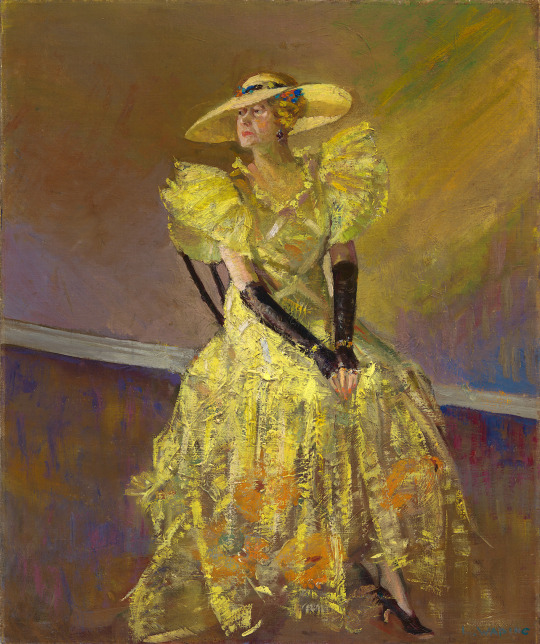#alice dunbar nelson
Text
youtube
The writings and activism of Black, bisexual feminist Alice Dunbar Nelson, June 25, 2023
As we enter the final week of Pride Month, our "Hidden Histories" series takes a look at the works of Alice Dunbar-Nelson, a bisexual Black woman whose writings and activism advocated racial equality and women's suffrage at the turn of the 20th century.
PBS NewsHour
#pbs newshour#lgbtq#history#black history#american#pride#feminism#Alice Dunbar Nelson#activism#Hidden Histories#20th century#literature#Harlem Renaissance#Alice Ruth Moore#race#racism#inequality#gender#intersectionality#NAACP#suffrage#civil rights#19th century#Youtube
18 notes
·
View notes
Text

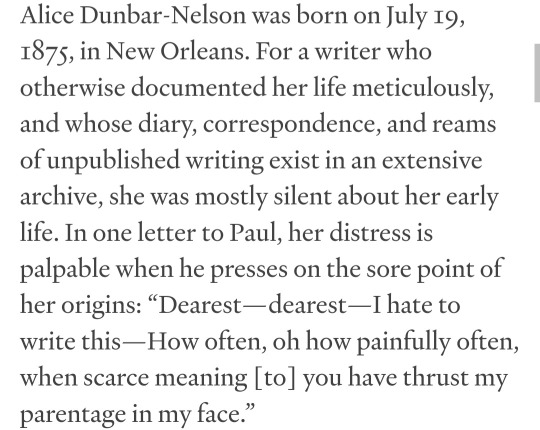

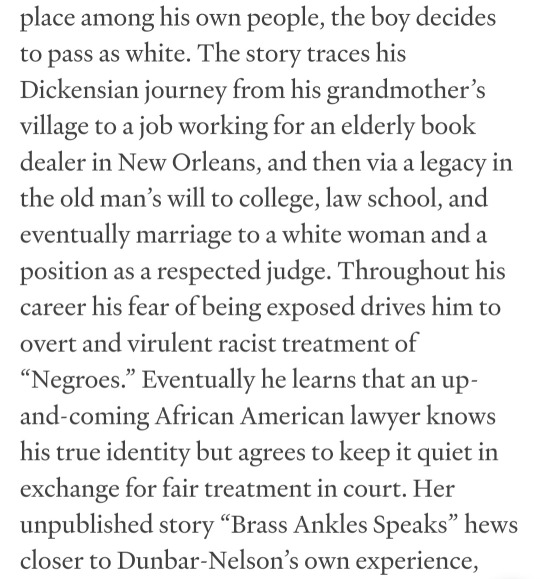

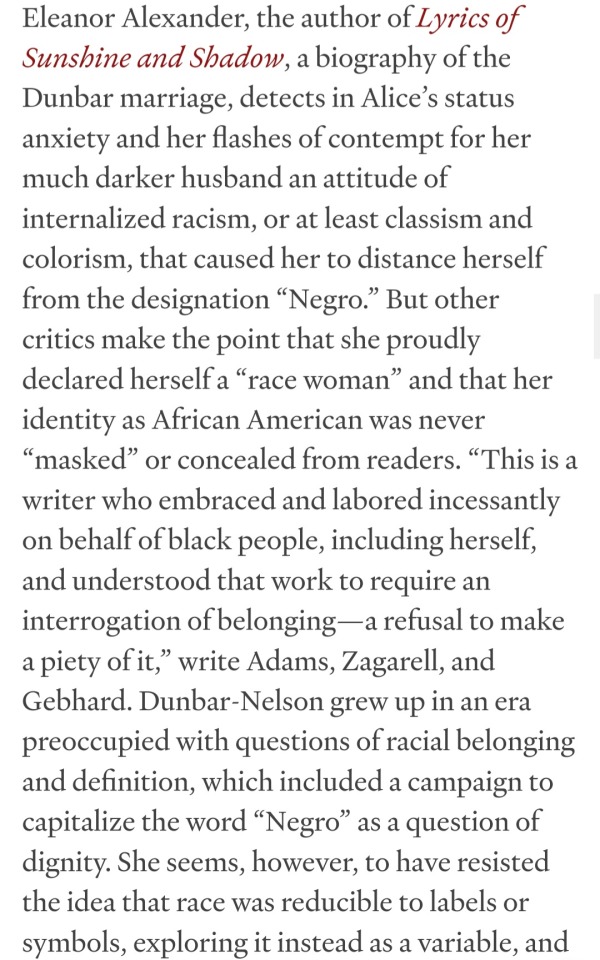

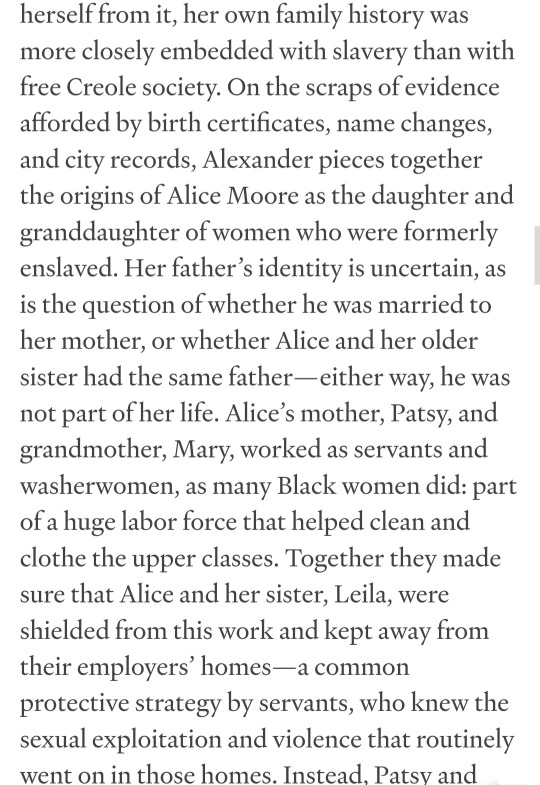
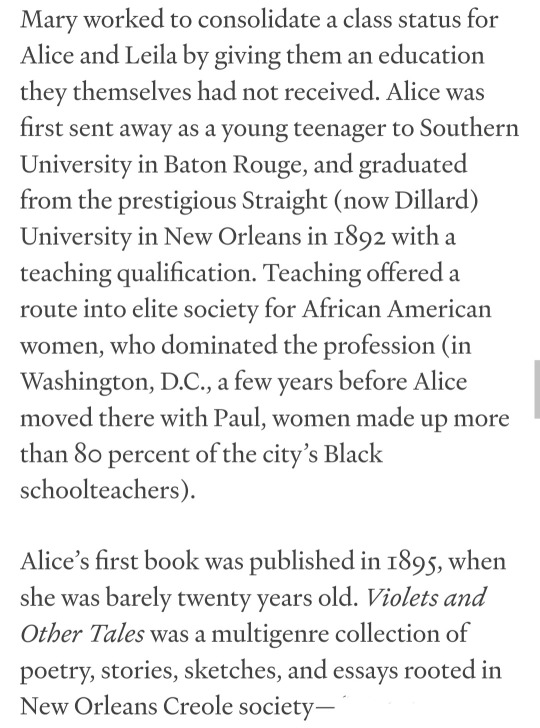

transformative power of the classroom for African Americans, and the importance for Black children of stories that centered Black characters - lamenting in her essay "Negro Literature for Negro Pupils" that "for two generations we have given brown and black children a blonde ideal of beauty to worship, a milk-white literature to assimilate, and a pearly Paradise to anticipate, in which their dark faces would be hopelessly out of place." In her diary, which she kept daily for most of her life, she also recorded less lofty reactions to the daily grind of the classroom, as in this outburst from 1897: "Exhausted? I feel like a dishrag. 62 untamed oderiferous kids all day...Fiends, just fiends pure and simple."
Throughout her time in Delaware, Dunbar-Nelson's activism continued. She wrote for Du Bois's The Crisis on women's suffrage and became a field organizer for the campaign in Pennsylvania. In 1916, she married Robert J. Nelson, a journalist and politican, and together with him edited and published a progressive newspaper, the Wilmington Advocate.
In her diary, she also detailed the romantic relationships she had with women, including the Los Angeles-based activist Fay Jackson Robinson and artist Helene Ricks London, in entries that are sometimes tortured, but often frank and celebratory.
In the twenties, the cultural and political explosion of the Harlem Renaissance swept Alice Dunbar-Nelson up in its trail, even though she had not lived in New York for many years and was still based in Delaware. She was friends with most of the leading lights of the era, especially Du Bois and the poet Georgia Douglas Johnson, but she had her differences with them, too. She critiqued the novelist Jessie Redmon Fauset's generally well-received novel Plum Bun, rejecting the "injudicious laudation" that she worried was coming to a Black writer purely on the basis of race. She wanted a bigger frame, and laid claim to a white literary canon that was as much her heritage as any other, writing a scholarly dissertation on Wordsworth, with whom she shared a love of nature. One of her best-known poems celebrates the natural beauty of a violet in nature by contrasting it with the artifice of its copy in an urban setting, where the idea of the flower calls to mind: "florists' shops/And bows and pins, and perfumed papers fine;/ And garish lights, and mincing little fops/And cabarets and songs, and deadening wine."
And despite her early reputation as a poet, she found her voice more and more as a journalist when she wrote a syndicated column, Une Femme Dit, and contributed a wealth of reviews and essays to newspapers and magazines.
4 notes
·
View notes
Text
Alice Dunbar-Nelson | A Song Of Love
#lovepoetry
#blackpoets
#blackhistorymonth
Oh, drink thou deep of the purple wine,
And it’s hey for love, for I love you so!
Oh, clasp me close, with your lips on mine,
And it’s hey for love, for I love you so!
The sea lies violet, deep, and wide,
My heart beats high with the rushing tide;
Was it fancy, beloved, the seagulls cried:
“Sing loud for love, for I love him so”?
Oh, little boat for tossing wave,
Sing loud for love, for I love…

View On WordPress
3 notes
·
View notes
Link
Happy birthday to the late poet, journalist, and political activist, Alice Dunbar Nelson.
3 notes
·
View notes
Text
I Sit and Sew by Alice Moore Dunbar-Nelson

Personally, one of my favorite genres of poetry is war time poetry, particularly from the home front. And this poem is no exception.
I Sit and Sew does an amazing job at capturing the frustrations of the women-particularly black women-during World War 1 who had to sit and watch the war efforts from a distance, bitter at the inability to help anywhere beyond the station she's expected to sit at. The repetition in this poem is done so beautifully and it really demonstrates the frustration and feelings of helplessness.
I recommend you search out this poem (as well as look into Alice Moore Dunbar-Nelson as a person! She lived a fascinating life and worked hard as a social activist. There's also documentation of her having both male and female partners, but I hesitate to label her because it's always tricky to post humorously label someone's sexuality.)
1 note
·
View note
Text
RP Partner Wanted
Hi! I'm a 23 year old rper who would love to find some rp partners. So I'm looking for 18+ rpers who would want to write fandom or fandomless things with me! I have a few plot ideas for fandomless stuff but am open to hearing any ideas you have. I do double and am willing to rp anyone or any ship for you and I write both male and female ocs! The fandoms/characters I play are listed under the read more. For all of the fandoms I want to double and i do have a few canon ships but prefer ocxcanon. I write only on discord and i prefer real face claims no animated stuff. I love talking ooc, making edits, playlists, sharing hc and all that fun stuff. I also like including NSFW. If interested please interact or message me!
Stranger things:
Billy Hargrove
Henry Creel
Steve Harrington
Will Byers(aged up)
Dustin Henderson(aged up)
Mike Wheeler(aged up)
Eddie Munson
Chrissy Cunningham
Jonathan Byers
Lucas Sinclair(aged up)
Jason Carver
Dmitri Antonov
Gareth
Harry Potter:
Golden Trio: Draco Malfoy, Luna Lovegood, Cedric Diggory, Fred or George Weasley, Theodore Nott, Mattheo Riddle
Maruaders: Regulus Black, Sirius Black, Remus Lupin, Severus Snape, James Potter, Lily Evans, Peter Pettigrew
Next gen: Albus Severus Potter, James Sirius Potter, Scorpius Malfoy, Teddy Lupin
Twilight:
Edward Cullen
Jacob Black
Carlisle Cullen
Alice Cullen
Rosalie Hale
Jasper Hale
Caius Volturi
Jane Volturi
Demetri
Felix
Riley Biers
Quil Ateara
Embry Call
Paul Lahote
IT:
Richie Tozier
Eddie Jaspbrak
Bill Denbrough
Stanley Uris
Henry Bowers
Patrick Hockstetter
Victor criss
Wednesday:
Enid Sinclair
Human!Thing
Xavier Thorpe
Tyler Galpin
Pugsly Addams(aged up)
Rowan Laslow
Ajax Petropolus
House of the dragon:
Aemon Targaryen
Alicent Hightower
Aegon Targaryen
Helaena Targaryen
Jacaerys Velaryon
Lucerys Velaryon(aged up)
Descendants:
Mal
Evie
Jay
Carlos
Ben
Jane
Doug
Audrey
Chad
Uma
Harry Hook
Gil
Saw:
Amanda Young
Lawrence Gordon
Adam Stanheight
Daniel Matthews
Shadow and Bone:
Kaz Brekker
Jesper Fahey
Wylan Van Eck
Nina Zenik
Matthias Helvar
Euphoria:
Ashtray (Aged up)
Cal Jacobs
Derek
Fezco (New FC)
Cassie Howard
Maddy Perez
Nate Jacobs
Elliot
Aaron Jacobs
Wolf Pack:
Garrett Briggs
Luna Briggs
Harlan Briggs
Baron (New FC)
Blake Navarro
Cody Malcolm
Cyrus Nix
Everett Lang
Outer Banks:
John B
JJ
Sarah Cameron
Rafe Cameron
Kiara
Pope
Code Lyoko:
Odd Della Robia
Ulrich Stern
Jeremy Belpois
William Dunbar
Yumi Ishiyama
Aelita Schaeffer
Love, Victor:
Victor Salazar
Benji Campbell
Felix Westen
Pilaz Salazar
The Maze Runner:
Thomas
Next
Minho
Gally
Chuck (aged up)
Aris
Young Royals:
Wilhelm
Simon
August
Henry
Heartstopper:
Charlie Spring
Nick Nelson
Tao Xu
Elle Argent
James McEwan
Ben Hope
Tori Spring
Aled Last
The Lost Boys:
Michael Emerson
Dwayne
Marko
Sam Emerson (Aged up)
Alan Frog (Aged Up)
Edgar Frog (Aged up)
Paul
David
Narnia:
Edmund Pevensie
Peter Pevensie
Prince Caspian
One Piece:
Luffy
Zoro
Sanji
Buggy
Koby
Shanks
Usopp
13 Reasons Why:
Montgomery De La Cruz
Winston Williams
Jeff Atkins
Tyler Down
Scott Reed
Cyrus
Justin Foley
Alex Standall
Zach Dempsey
Five Nights At Freddy's:
Mike Schmidt
Cobra Kai:
Miguel Diaz
Robby Keene
Eli 'Hawk' Maskowitz
Demetri Alexopoulos
The Hunger Games
Les Miserables
SKAM/DRUCK/WTFOCK
#1x1 discord rp#1x1 roleplay#discord rp#oc rp#1x1 rp#heartstopper#heartstopper rp#rp partner search#rp partner wanted#rp partner needed#stranger things#stranger things rp#harry potter#harry potter rp#twilight#twilight rp#it#it rp#wednesday#wednesday rp#house of the dragon#house of the dragon rp#disney descendants#descendants rp#descendants#saw#saw rp#shadow and bone#shadow and bone rp#euphoria
90 notes
·
View notes
Text
claudia poems
we don't know exactly when she died (or even for absolutely sure if! at this point! technically! here's how 47 years after the publication of the book alive claudia can still win–) but i'm dividing this into "before 1950" and "after 1950" as a guesstimate
poems from before 1950
gwendolyn bennett, "hatred"
countee cullen,"thoughts in a zoo"
emily dickinson,
"it was not death, for i stood up,"
"after great pain, a formal feeling comes–"
"i never hear the word 'escape'"
"they shut me up in prose"
alice moore dunbar-nelson, "if i had known"
john keats, "lamia [left to herself]"
georgia douglas johnson,
"the heart of a woman"
"foredoom"
"your world"
"smothered fires"
d.h. lawrence, "ressurection"
marie luhrs, "cry"
claude mckay, "adolescence" (thank you this post)
edna st. vincent millay,
"departure"
"rendezvous"
esther popel, "theft"
robert roe, "a light song"
marjorie allen seiffert, "the man-made woman"
poems from after 1950
lucille clifton, "my dream about time"
angela jackston, "angelhair"
rebecca hazelton, "book of memory"
lisel mueller,
"happy and unhappy familes i & ii"
"imaginary paintings"
"the late news"
"letter from the end of the world"
alice notley, "the descent of alette ['a car' 'awash with blood']"
sharon olds,
"satan says" (thank you this post)
"after 37 years my mother apologizes for my childhood"
sue owen, "written in blood"
justin phillip reed, "pushing up onto its elbows, the fable lifts itself into fact"
sonia sanchez,
"poem at thirty"
"blues"
"sequences"
"under a soprano sky"
"fragment 2"
prageeta sharma, "the imperishable and perishable family"
keith s. wilson, "impression of a rib"
jamila woods, "on naming yourself (a cento)"
charles wright, "nightletter"
kevin young, "i am trying to break your heart"
26 notes
·
View notes
Text
Free Gaymila//A Brief History of Voguing
With Camila practicing her Voguing

My dear friend @emisonme told me the meaning of the Voguing, that dancing Camila has been doing lately. And here is the story
A Brief History of Voguing
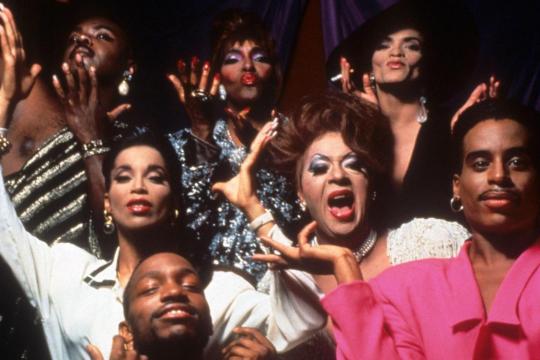
There is a dangerous myth that queer life did not exist in a public way until the 1960’s – the assumption being that LGBTQ (Lesbian, Gay, Bisexual, Transgender, Queer) identified people were “closeted” in isolation and invisibility. This could not be further from the truth. Historical scholarship has unearthed a world of saloons, cabarets, speakeasies, rent parties, and drag balls that existed since the late 1800’s as spaces where LGBTQ identities were not only visible, but openly celebrated. Some of the most influential residential enclaves for these communities were in New York, one of the most notable being Harlem.
Richard Bruce Nugent, Tom Wirth, Wikimedia Commons.
At the beginning of the twentieth century, a distinctly black LGBTQ culture took shape in Harlem. The Harlem Renaissance (1920-1935) was particularly influential to this process. The intellectual, cultural and artistic movement took the neighborhood by storm, bringing with it a flurry of literature, art, and music that centered black life. Many of the movement’s leaders were openly gay or identified as having nuanced sexualities including Angelina Weld Grimké, Claude McKay, Langston Hughes, Wallace Thurman, Alice Dunbar-Nelson, Alain Locke, and Richard Bruce Nugent among others. The movement offered a new language that challenged social structures and demonstrated the ways that race, gender, sex and sexuality distinctions were actually intersecting, fluid and constantly evolving.
Over the years, Harlem continued to be a vibrant site of LGBTQ art, activism and culture. So it should come as no surprise that Harlem was the birthplace of “vogue”, a highly stylized form of dance created by black and Latino LGBTQ communities. Between the 1960’s and 80’s New York drag competitions known as “balls” transformed from elaborate pageantry to “vogue” battles. As part of this ballroom culture, black and Latino voguers would compete for trophies and the reputation of their “Houses” – groups that were part competitive affiliation, part surrogate family. Named after the famous fashion magazine, vogue took from the poses in high fashion and ancient Egyptian art, adding exaggerated hand gestures to tell a story and imitate various gender performances in categorized drag genres.
Through dance, drag queens showed how gender is a performance – they pretended to put on makeup or “beat face”, style their hair, and put on extravagant clothes. This creative performance through voguing was even used to peacefully settle disputes among rivals in an environment that assumed a degree of mutual respect and compassion. Using dance and pantomime, the voguers would “read” each other. Ultimately, the winner would be the person who “threw the best shade.”
With time, vogue changed from the “Old Way” (which emphasized hard angles and straight lines) to the “New Way” in the late 1980’s (which added elements like the catwalk, the duckwalk, spinning, bussey and enhanced hand performance). Today, New Way is characterized by more rigid movements and “clicks” or joint contortions. Vogue Fem uses similar “New Way” elements but focuses on speed, flow and stunts. Regardless of the style, voguing shows the courage of black and Latino LGBTQ communities to make an art form that goes beyond creative expression. Vogue offers a sense of identity, belonging and dignity in a world that does not fully value their lives.
The documentary Paris is Burning captures a snapshot of the history of vogue in the mid-late 1980’s. This iconic film by Jennie Livingston was a portrait of some of the most prominent voguers in New York’s ballroom scene and the challenges they faced along the lines of race, gender, class and sexuality. Although it is widely celebrated as an invaluable piece of documentary history on LGBTQ communities of color, the film remains controversial. The voguers in the film were working-class, poor and/or sex working. Some were even battling homelessness and HIV/AIDS. Yet they had to sue to be paid next to nothing for their participation in the film.
Feminists like bell hooks believe that Livingston was not critical of her position as a white filmmaker. hooks goes on to argue that without references to any subversive process that might be taking place, voguers seem to imitate the very structures that marginalize them. Other scholars maintain that the imitation used in vogue creates a black imaginative space where aesthetics and LGBTQ life can be explored in all its complexity.
These complicated issues of race, representation and appropriation in relation to vogue continue today. They are important to address in order to keep traditions that are at once black, brown and LGBTQ and debunk the myth that LGBTQ lives of color were never publicly lived.
_____
Yeah folks. the Voguing has to do with the Black and Latin LGBT community and Camila has been promoting it. I'm waiting for the day when she be free enough to be herself and talk about it freely, but in the meantime, I'm waiting for more of her practice
41 notes
·
View notes
Photo

Henry Arthur Callis (January 14, 1887 - November 12, 1974) was one of the Seven Jewels or Founders of Alpha Phi Alpha Fraternity. He was born in Rochester to the Rev. Henry Callis and Helen Josephine Callis. As a result of an elevator accident that killed his mother, he, age 3, spent his formative years under the care of his maternal grandparents in Binghampton. He graduated in 1905 from high school and left Binghampton to attend Cornell University. He earned a partial scholarship and worked as a tutor and waiter for white fraternity houses on campus. He was forced to drop out due to financial struggles the same year, but he did not give up; he saved his money and reentered in the fall of 1906. A group of African American students in a literary society, of which he was a member, decided to form a fraternal organization. On December 4, 1906, seven of the society members, transitioned it into a fraternal organization named Alpha Phi Alpha. He was credited with the fraternity’s name and initial ritual ceremony. He is the only Jewel to serve as general president from 1915-1916 onward. He took a position at Howard High School in Wilmington, Delaware. There he taught History and German and met his first wife, Alice Dunbar–Nelson, a noted novelist, poet, and civil rights activist. After a one-year stint at the school, he was admitted to the University of Pennsylvania Medical School, where he studied from 1910 to 1913. He entered the graduate science program at the University of Chicago to broaden his understanding of biological sciences. In 1914 he married commercial artist Pauline Callis. He graduated and gained employment as a chemist at Armour & Co. in its chemical laboratories. He became a bacteriologist at the Contagious Disease Hospital in Chicago and was accepted to Rush Medical College, he graduated in 1921. He served as pathologist and head of laboratory services at the Veterans Hospital in Tuskegee and associate professor of medicine and attending physician in charge of medical services at Freedmen’s Hospital. He continued to serve his community and fraternity until he died. #africanhistory365 #africanexellence #alphaphialpha https://www.instagram.com/p/CnZYmixLhkV/?igshid=NGJjMDIxMWI=
5 notes
·
View notes
Text
The Adventures of David Dashiki- Stories of an African America Hero... 2024- Year of the Black Man Aaaahhh! But What To Read ?

READING...
We have agreed that reading is our starting point. Then, here are some essential and brilliant authors that you must possess in your quiver as ammunition in the battle against illiteracy. Make no mistake, this is scholastic warfare. An ill-equipped reading warrior is only armed for his own demise. Secondly, on the battlefield, we must be able to fluently communicate. We must speak the same language. One cannot speak Swahili and the other, French. This type of preparation would only lead to disaster of major proportions.
Garvey is the primer. Other authors of significant fame and reputation that our young readers must master are: Arna Bontemps, Claude Brown, Ralph Ellison, Richard Wright, Alex Haley, Ta-Nehisi Coates, August Wilson, Malcolm X, Nelson Madela, W.E.B. DuBois, Calvin Baker, Junius Edwards, Yosef Ben-Jochannan, Harold Cruse, Maulana Karenga...
Female Authors: Alice Walker, Amanda Gorman, Toni Morrison, Chi Mammanda, Ngozi Adichie, Bell Hooks, Audre Lorde, Lorraine Hansberry, Terry McMillan, Ntozake Shange, Jesmyn Ward, Angela Davis, Ida B. Wells, Claudia Tate, Dorothy Koomson, Cheryl Clarke, Sioban Brooks, Elaine Brown, Ruby Bridges, Rosa Parks, Dorothy Porter...
Poetesses: Nikki Giovani, Maya Angelou, Phyllis Wheatley, Mari Evans...
Poets: Langston Hughes, Amiri Baraka, Paul Laurence Dunbar, Countee Cullen. Jean Toomer
We must read so that we can survive the myths. We live in a country in which myths about our character and industry have been propagated for centuries. History has not told our story with veracity and pride. We have been maligned. Therefore, we use the Year 2024 to read what WE have to say about US. If we do not read, we will succumb to the vicious lies spoken and written about us. Our children will never overcome in the current social environment. What is most important is that we read our story and focus on why is it important to omit the truth about what has happened and will continue to happen to us in America. This is a land of opportunity. It is our duty to reveal the truth. This can only be accomplished if we read, act, do, speak, question, create, develop, execute, move, pursue, respond, persevere, operate, persist, exert, represent, exploit,... Damn it! We must do something. The plan is that we read. Fill the knowledge gaps. Then act. The dormant days of life have ended. We are in the moment knowledge warriors.
Here are a few questions I advance: Why is it important that America omit our true history in our textbooks?
Why has America hidden the history, of our past, our successes and achievements from all who call themselves AMERICANS?
What has been taught are lies, propaganda and MYTHS.. America is a land of opportunity. We can right these wrongs. First , we must be armed with our own stories and triumphs. We must be READERS.
0 notes
Text
To the Negro Farmers of the United States
BY ALICE MOORE DUNBAR-NELSON
God washes clean the souls and hearts of you,
His favored ones, whose backs bend o’er the soil,
Which grudging gives to them requite for toil
In sober graces and in vision true.
God places in your hands the pow’r to do
A service sweet. Your gift supreme to foil
The bare-fanged wolves of hunger in the moil
Of Life’s activities. Yet all too few
Your glorious band, clean sprung from Nature’s heart;
The hope of hungry thousands, in whose breast
Dwells fear that you should fail. God placed no dart
Of war within your hands, but pow’r to start
Tears, praise, love, joy, enwoven in a crest
To crown you glorious, brave ones of the soil.
#ALICE MOORE DUNBAR-NELSON#poem#poetry#poet#poetry on tumblr#pride month 2022#gay poets society#black poet society#Alice Dunbar Nelson
0 notes
Text
Celebrating the Legacy of Alice Dunbar-Nelson on her birthday 📚 🗞️ Today, we're shining a light on the incredible Alice Dunbar-Nelson, a trailblazing writer, poet, educator, and activist whose impact continues to resonate through the ages. Let's dive into some fascinating facts about this remarkable woman: ✍️ Alice Dunbar-Nelson was born on July 19, 1875, in New Orleans, Louisiana. She emerged as a prominent figure during the Harlem Renaissance, a cultural movement that celebrated African American art, literature, and intellectualism. 📖 As an accomplished writer, Dunbar-Nelson published numerous poems, short stories, and essays that explored themes of race, gender, and social justice. Her work often confronted the intersectionality of identity and addressed the struggles faced by African Americans and women in society. 🎓 Education played a crucial role in Dunbar-Nelson's life. She earned a teaching degree from Straight University (now Dillard University) in New Orleans and later pursued further studies at Cornell University. Throughout her career, she advocated for education as a means of empowerment and social progress. 🌍 Dunbar-Nelson was also a passionate activist, fighting for civil rights, women's suffrage, and racial equality. She actively participated in organizations like the NAACP (National Association for the Advancement of Colored People) and worked alongside prominent activists of her time. 💡 In addition to her literary achievements, Alice Dunbar-Nelson broke barriers as one of the first African American women to gain recognition as a journalist. She contributed articles to various newspapers, using her platform to advocate for social change and challenge prevailing stereotypes. 📚 Beyond her own creative endeavors, Dunbar-Nelson played a pivotal role in promoting the work of other writers and artists. She was known for organizing literary salons, fostering a vibrant intellectual and artistic community that nurtured and celebrated African American talent. 🌟 Alice Dunbar-Nelson's legacy serves as a beacon of inspiration, reminding us of the power of words, activism, and the pursuit of equality. Her fearless voice and unwavering dedication continue to pave the way for future generations.
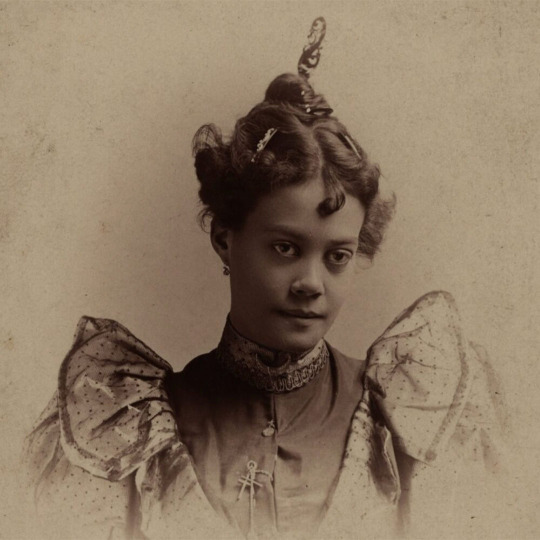
3 notes
·
View notes
Text
Efemérides literarias: 19 de julio
Nacimientos
1744: Heinrich Christian Boie, escritor alemán (f. 1806).
1803: Ramón de Mesonero Romanos, escritor español (f. 1882).
1819: Gottfried Keller, novelista y poeta suizo de lengua alemana (f. 1890).
1849: Ferdinand Brunetière, escritor y crítico literario francés (f. 1906).
1875: Alice Dunbar-Nelson, escritora y activista estadounidense (f. 1935).
1893: Vladimir Maiakovski, poeta…
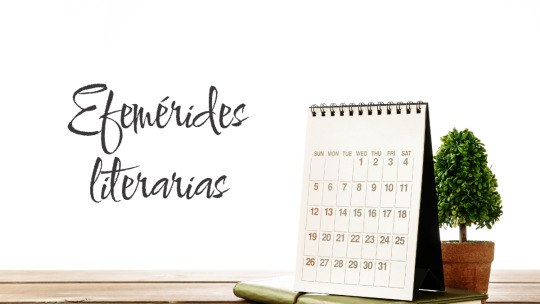
View On WordPress
0 notes
Text
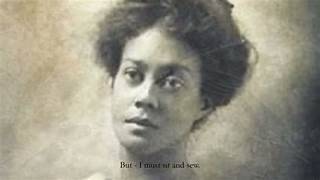
Alredered Remembers New Orleans native, poet, essayist, columnist, and short story writer Alice Moore Dunbar Nelson, on her birthday.
"In every race, in every nation, and in every clime in every period of history there is always an eager-eyed group of youthful patriots who seriously set themselves to right the wrongs done to their race or nation or . . . art or self-expression."
-Alice Dunbar Nelson
0 notes
Text
Birthdays 7.19
Beer Birthdays
Adrian Tierney-Jones
Five Favorite Birthdays
Benedict Cumberbatch; English actor (1976)
Edgar Degas; French artist (1834)
Anthony Edwards; actor (1962)
Max Fleischer; animator (1883)
Brian May; rock guitarist (1947)
Famous Birthdays
Yael Abecassis; Israeli model and actress (1967)
Muhammad al-Bukhari; Persian scholar (810)
Marianna Auenbrugger; Austrian composer (1759)
Paule Baillargeon; Canadian actress and director (1945)
Theo Barker; English historian (1923)
Buster Benton; singer-songwriter and guitarist (1932)
Heinrich Christian Boie; German author and poet (1744)
Lizzie Borden; accused murderer (1860)
Vicki Carr; singer (1941)
Allen Collins; guitarist and songwriter (1952)
Samuel Colt; inventor (1814)
Mark Crispin; computer scientist (1956)
A.J. Cronin; writer (1896)
Friedrich Dessauer; German physicist and philosopher (1881)
Atom Egoyan; Egyptian-Canadian director (1960)
Michael Fekete; Hungarian-Israeli mathematician (1886)
Thomas Gabriel Fischer; Swiss musician (1963)
André Forcier; Canadian director and screenwriter (1947)
Helen Gallagher; actress, singer, and dancer (1926)
Keith Godchaux; rock keyboardist (1948)
Alan Gorrie; Scottish singer-songwriter (1946)
Kevin Haskins; English drummer and songwriter (1960)
Joseph Hansen; author and poet (1923)
Samuel John Hazo; author (1928)
Pat Hingle; actor (1924)
Florence Foster Jenkins; soprano (1868)
Richard Jordan; actor (1938)
Gottfried Keller; Swiss author and poet (1819)
Aleksandr Khinchin; Russian mathematician (1894)
Lisa Lampanelli; comedian (1961)
Bernie Leadon; guitarist and songwriter (1947)
Robert Mann; violinist, composer, and conductor (1920)
John Martin; English artist (1789)
Charles Horace Mayo; surgeon, clinic founder (1865)
George McGovern; politician (1922)
Tim McIntire; actor and singer (1944)
Freddy Moore; singer-songwriter and guitarist (1950)
Ilie Nastase; tennis player (1946)
Alice Dunbar Nelson; African-American poet (1875)
Garth Nix; Australian writer (1963)
Jim Norton; comedian (1968)
Mark O'Donnell; playwright (1954)
Steve O'Donnell; screenwriter and producer (1954)
Jayne Anne Phillips; writer (1952)
Edward Charles Pickering; astronomer and physicist (1846)
Martin Powell; English keyboard player and songwriter (1973)
Arthur Rankin Jr.; animation director, producer (1924)
Tom Raworth; English poet (1938)
Miltos Sachtouris; Greek poet (1919)
Campbell Scott; actor (1961)
Elizabeth Spencer; writer (1921)
Percy Le Baron Spencer; microwave inventor (1894)
Sue Thompson; singer (1925)
Rosalyn Sussman Yalow; physicist (1921)
1 note
·
View note
